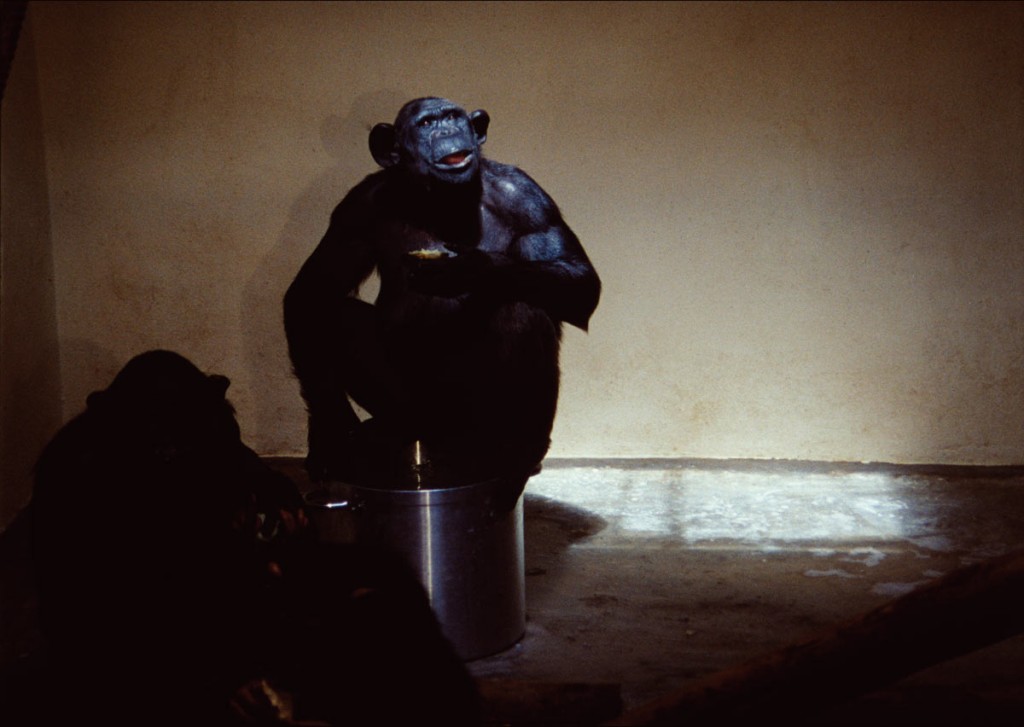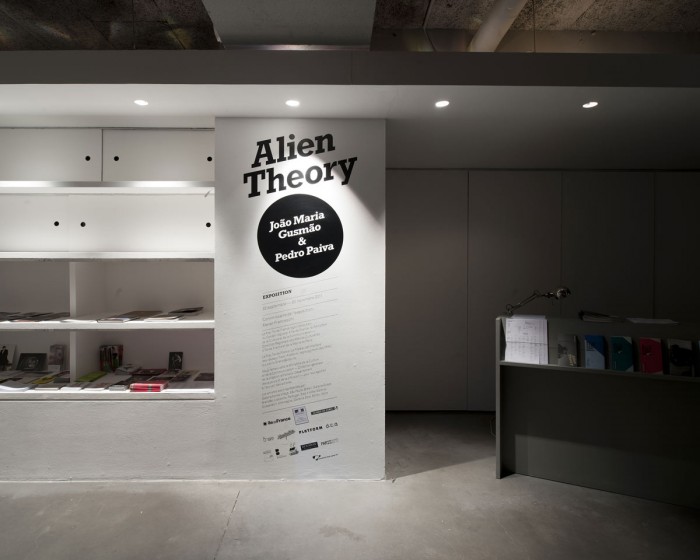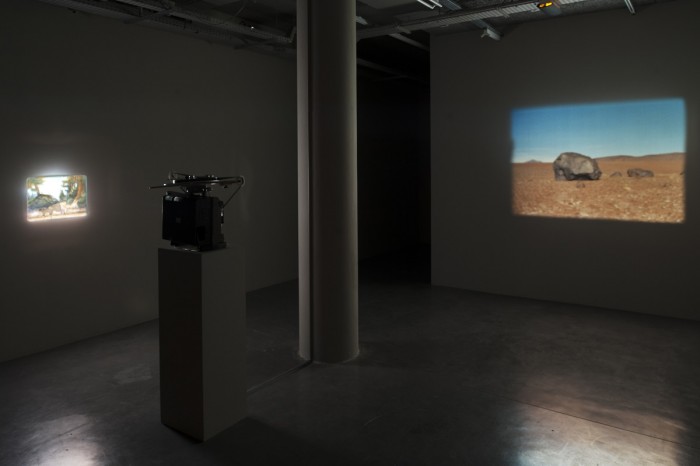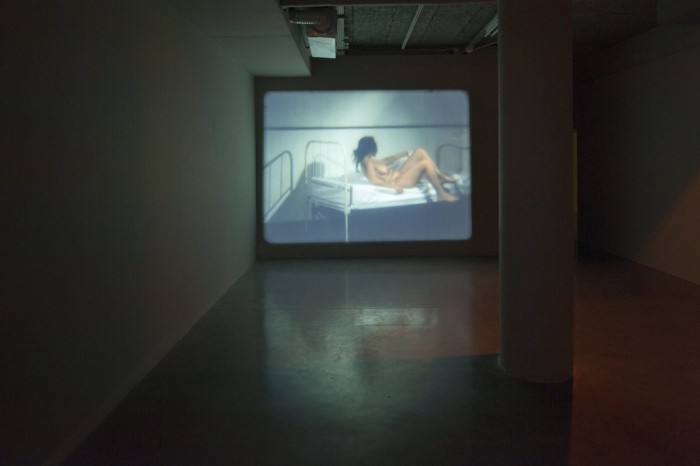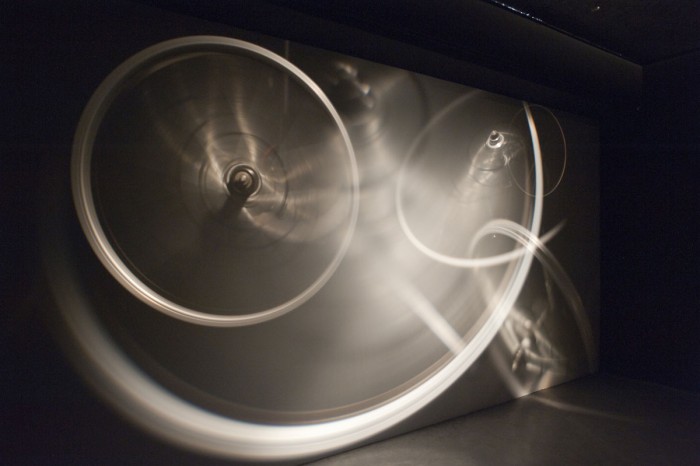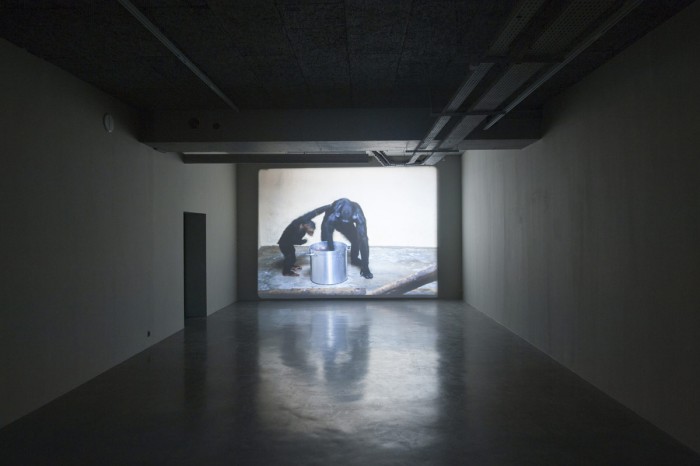Curated by Xavier Franceschi
The Frac Île-de-France/ Le Plateau are holding the first solo show in France of the Portuguese artists João Maria Gusmão and Pedro Paiva.
Since 2001 João Maria Gusmão (b.1979) and Pedro Paiva (b. 1977) have been involved in a shared project where, through films, installations, sculptures and photographs, philosophiocal, not to say metaphysical considerations give rise to as many works which, not unwittily, revisit the arena of reality.
In particular, this twosome of Portuguese artists endeavours to re-question some of the most established certainties about the foundations of our world. By the same token, it is first and foremost issues of perception which are raised, linking up, in passing, with preoccupations which are, essentially, those of art—perception of the work, perception of the world by way of the work—and those which, precisely, any undertaking—be it philosophical, metaphysical, as well as scientific, therefore—involving knowledge and understanding of the world introduces.
Other perceptions are accordingly summoned, along with other conceptions of this world, from those expressed by the first Greek philosophers to those shared by many peoples throughout the world—in particular in Africa and in certain former Portuguese colonies—where animism regards the animal, vegetable and mineral kingdoms as being vaguely—and indiscriminately—traversed by a spirit and a force which needs revealing.
Beyond this, the artists will also draw merrily from the literary arena—so from Jarry, Wells and Victor Hugo and that “effluvium” of vital fluid which he describes in L’Homme qui rit–, with a pronounced soft spot for a pataphysics which, it just so happens, unabashedly and in a thoroughly loose way, traverses every field of knowledge—a liking for proposals with a high poetic value.
But what João Maria Gusmão and Pedro Paiva present us with in the end of the day has nothing to do with a theoretical discourse or a strictly referential interplay.
Their works invite us to a set of encounters and experiments which, seemingly, tend to shed light on a certain number of unusual phenomena, are imposed by their perfect singularity and their deep-seated strangeness.
Through this method which, for many scientists, especially in the field of anthropology, was that of recording reality, their films, in particular, have a central place in this respect: systematically silent—if the demonstration is obvious, nothing to talk about, ergo–, they get us to attend events which are, for us, like so many ghostly apparitions.
We are, de facto, with Gusmão/Paiva, essentially and at every level, in the domain of imagery and many of their works, which are defined by shadow, light and reflection interplays, seem haunted by a Platonic vision lending the images a primordial value.
From this angle, the artists are permanently handling—out of necessity, it is tempting to say—metaphor, analogy and ellipsis, to convey in images the different thoughts and other concepts which they enjoy, and have fun, wanting to evoke. The other basic, typical feature of their work is indeed this dimension of game and wit which functions in all their works, for our ultimate pleasure.
This wit at work is already the comic factor in certain situations, even in certain elements in themselves, but it is the very fact of thus wanting to represent ideas and phenomena which are, on the face of it, extraordinary: the undertaking, in its ambition, borders on the absurd.
But where the art of Gusmão/Paiva excels above all is precisely in this faculty to achieve the sought effect, in spite of everything. While these—derisory—means are conveyed as such, without artifice, charm gets to work and here the artists’ twosome paradoxically achieves that magic which they want in principle to have us experience.
The goal of the show at Le Plateau is to focus on their production of films and camera obscuras. Like these objects, these elements which are traversed by a vital afflatus, focusing on what is defined, above all, as a set of animated images.
The fact that these objects, in particular, might have a life—whence a reconsideration of the autonomy of the work/object advocated by many an artist during the 20th century—amply suffices to attempt to state an Alien Theory…
Xavier Franceschi
João Maria Gusmão (b. 1979) and Pedra Paiva (b/ 1977) represented Portugal at the 2009 Venice Biennale. They have had solo shows in many museums and contemporary art centres, including the Wattis Institute for Contemporary art, San Francisco, the Hanover Kunstverein, the Ikon Gallery, Birmingham, the Museu de Arte Contemporâneo de Castila y Leon, the Swedish Contemporary Art Foundation, Stockholm, and the Museu Nacional de Arte Contemporâneo, Lisbon…
They have taken part in many international events, such as the 2010 Gwangju Biennial, Manifesta in 2008, the Biennale de Mercolsul in Porto Alegre in 2007, and the Sao Paulo Biennale in 2006.
Slide Show
